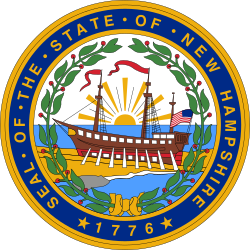1902 New Hampshire gubernatorial election
In this article, the impact of 1902 New Hampshire gubernatorial election on contemporary society will be addressed, analyzing its economic, social and cultural implications. 1902 New Hampshire gubernatorial election has become a topic of interest for academics, professionals and the general public, due to its relevance in today's world. Throughout the next sections, the evolution of 1902 New Hampshire gubernatorial election over time, as well as its influence on different aspects of daily life, will be explored. Likewise, the various opinions and positions on 1902 New Hampshire gubernatorial election will be examined, with the aim of offering a comprehensive and plural vision of this phenomenon.
| |||||||||||||||||
| |||||||||||||||||
 County results Bachelder: 40–50% 50–60% 60–70% | |||||||||||||||||
| |||||||||||||||||
| Elections in New Hampshire |
|---|
 |
The 1902 New Hampshire gubernatorial election was held on November 4, 1902. Republican nominee Nahum J. Bachelder defeated Democratic nominee Henry F. Hollis with 53.19% of the vote.
General election
Candidates
Major party candidates
- Nahum J. Bachelder, Republican
- Henry F. Hollis, Democratic
Other candidates
- John C. Berry, Prohibition
- Michael H. O'Neil, Socialist
- Alonzo Elliott, Independent
- George Howie, People's
Results
| Party | Candidate | Votes | % | ±% | |
|---|---|---|---|---|---|
| Republican | Nahum J. Bachelder | 42,115 | 53.19% | ||
| Democratic | Henry F. Hollis | 33,844 | 42.75% | ||
| Prohibition | John C. Berry | 1,621 | 2.05% | ||
| Socialist | Michael H. O'Neil | 1,057 | 1.34% | ||
| Independent | Alonzo Elliott | 468 | 0.59% | ||
| Populist | George Howie | 57 | 0.07% | ||
| Majority | 8,271 | ||||
| Turnout | |||||
| Republican hold | Swing | ||||
References
- ^ Kalb, Deborah (December 24, 2015). Guide to U.S. Elections. ISBN 9781483380353. Retrieved July 8, 2020.

